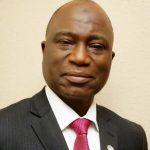
More than 1,500 concerned Nigerians, Socio-Economic Rights and Accountability Project (SERAP), BudgIT and Enough is Enough Nigeria (EiE) have filed a lawsuit asking the Federal High Court to restrain, prevent and stop the National Assembly Service Commission from paying the incoming members of the 9th National Assembly individually and/or collectively over N4.68 billion as ‘welcome package’.
SERAP, BudgIT and EiE, suing for themselves and on behalf of 1,522 concerned Nigerians, stated that: “The Revenue Mobilization, Allocation and Fiscal Commission (RMAFC) has failed to do any downward review of salaries and allowances of members of the National Assembly since 2007 in spite of the economic downturn in Nigeria. Yet, the commission is statutorily required to review the pay of the lawmakers, in conformity with the country’s economic realities and to achieve fiscal efficiency.”
In the suit number FHC/L/CS/943/2019 filed before the Federal High Court in Lagos, the plaintiffs argued: “Given many years of extreme poverty in the country, and the inability of several state governments to pay salaries of workers and pensions, the refusal or failure of the Revenue Mobilization, Allocation and Fiscal Commission to review and cut the salaries and allowances of members of the National Assembly is a gross violation of the 1999 Nigerian Constitution (as amended) and the commission’s own Act.”
Joined as defendants in the suit are the Senate President, Speaker of the House of Representatives, National Assembly Service Commission and Revenue Mobilization Allocation and Fiscal Commission (RMAFC).
The plaintiffs also argued that: “The duty of the RMAFC to review the salaries and allowances of members of the National Assembly is mandatory and the Commission cannot choose not to comply. Therefore, the failure or refusal by the Commission to comply with its own Act amounts to arbitrariness.
The suit reads in part: “Unless the reliefs sought by the plaintiffs are granted, the defendants and members of the National Assembly will continue to benefit from these outrageous salaries and allowances, in breach of the law and at the expense of millions of Nigerians living in extreme poverty.
“The amounts budgeted as payment for furniture and accommodation allowance to members of the 9th National Assembly negates the oath of office under the Seventh Schedule of the 1999 Constitution by members to perform their functions in the interest of the well-being and prosperity of Nigeria.
“The National Assembly comprises of 469 members – with 109 in the Senate and 360 in the House of Representatives. These public officers form a very tiny percentage of about 200 million Nigerians. Members are still eligible to collect huge sums of money as monthly allowances and severance pay at the end of their respective terms.
“The RMAFC is required to advise the Federal, State and Local Governments on fiscal efficiency and methods by which their revenue is to be increased. Prescribing N9,926,062.5 and N10,132,000:00 to members of the House of Representatives and Senate respectively, as furniture and accommodation allowance, is not in tandem with the Commission’s statutory mandate and advisory roles on fiscal efficiency.
“The action of members of the National Assembly in ‘rubber-stamping’ the passage of the Certain Political, Public and Judicial Office Holders [Salaries and Allowances] [Amendments] Act 2008 is also in clear breach of the Code of Conduct for Public Officers, particularly paragraph 1 of the Code of Conduct for Public Officers which provides that ‘a public officer shall not put himself in a position where his personal interest conflicts with his duties and responsibilities’.
“It can be inferred that in passing the Certain Political, Public and Judicial Office Holders [Salaries and Allowances] [Amendments] Act 2008, members of the National Assembly more or less appropriated these payments as allowance to themselves, thereby bringing about conflict of their personal interests with national interest of fiscal efficiency, a conflict eventually resolved in favour of personal interest.”
No date has been fixed for the hearing of the suit.





